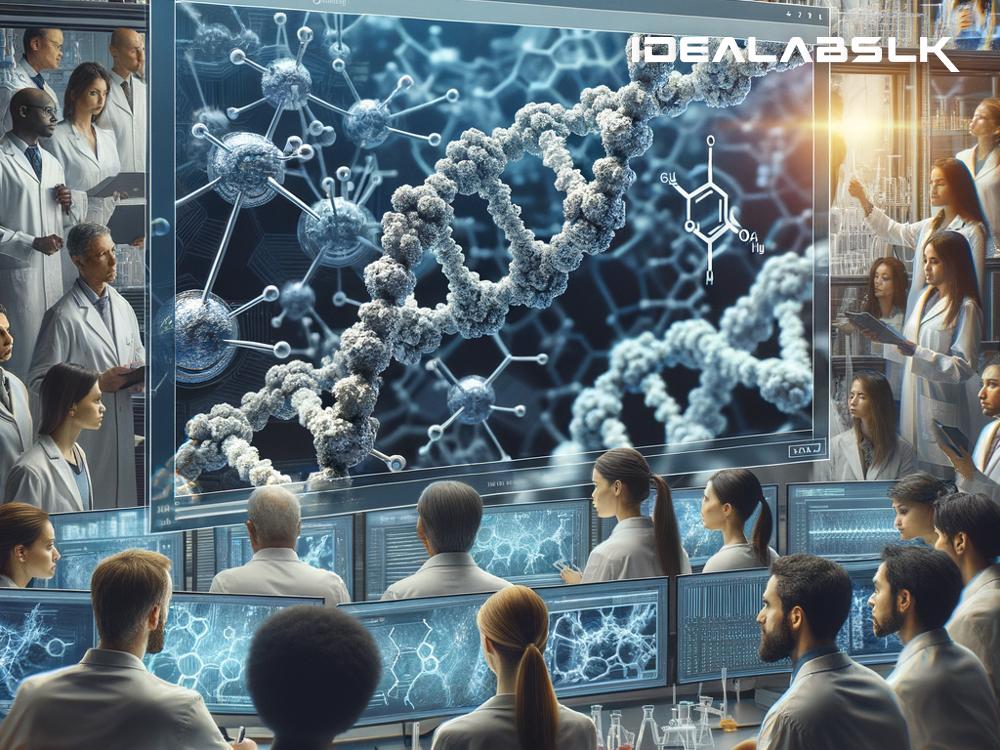In the intriguing world of healthcare, the quest for new, effective medicines is a journey filled with challenges and excitement. But did you know that machine learning, a form of artificial intelligence, is revolutionizing the way drugs are developed and tested? This game-changing approach is significantly altering the landscape of pharmaceutical research, making the journey from the lab bench to the patient's bedside faster, cheaper, and more efficient.
What is Machine Learning?
Before diving into the specifics, let's understand what machine learning is. Imagine teaching your computer to recognize patterns, make decisions, and learn from outcomes without being explicitly programmed for every single task. That's the core of machine learning. It’s like teaching a computer to learn from experience, improving its knowledge over time, much like a human does.
The Traditional Way
Traditionally, drug development has been a slow, expensive, and often uncertain process. Researchers would spend years in the lab, mixing chemicals and testing compounds on cells and animals, with no guarantee of success. Once a promising candidate was found, it would then undergo a series of rigorous clinical trials on humans, a process that could take over a decade and cost billions of dollars. The success rate? Remarkably low.
The New Era with Machine Learning
Enter machine learning, and the rules of the game are changing. Here's how:
Accelerating Discovery
Machine learning algorithms can sift through vast libraries of chemical compounds quickly, identifying potential drugs that could bind to specific proteins associated with diseases. This process, known as virtual screening, can save years of laboratory work.
Predicting Success
One of the most significant risks in drug development is investing heavily in a drug that fails late in the clinical trials. Machine learning models can predict the likelihood of success by analyzing data from previous trials and identifying patterns that were previously unnoticed.
Personalized Medicine
Machine learning is enabling the rise of personalized medicine, where treatments are tailored to the individual's genetic makeup. By analyzing genetic data from patients, algorithms can predict how they will respond to a particular drug, helping in the selection of the most effective treatment with the fewest side effects.
Improving Clinical Trials
Machine learning is also transforming how clinical trials are conducted. By analyzing vast amounts of data from health records, wearable devices, and even social media, researchers can identify suitable participants more quickly, predict which participants are likely to drop out, and monitor patients more efficiently.
The Benefits Are Clear
The advantages of incorporating machine learning into drug development and testing are clear:
-
Speed: What used to take years can now be done in months, or even weeks.
-
Cost: Reducing the time and resources needed for drug discovery and trials directly impacts the overall cost.
-
Success Rates: By predicting outcomes more accurately, machine learning can increase the likelihood of a drug being successfully developed.
-
Personalization: Customizing treatment to the individual level means more effective healthcare overall.
Challenges and Considerations
Despite its promise, integrating machine learning into drug development isn't without its challenges. Issues such as data privacy, the need for vast, high-quality datasets, and the explainability of algorithm decisions are significant hurdles. Furthermore, regulatory considerations around the approval of drugs discovered and tested using machine learning methods require careful navigation.
The Future is Bright
As we continue to refine these technologies and address these challenges, the potential of machine learning in transforming drug development and testing is immense. The amalgamation of biology, chemistry, and artificial intelligence hints at a future where new medicines are discovered more quickly and tailored more precisely to individual needs, heralding a new era in healthcare.
In conclusion, machine learning is not just changing the game; it's redefining the playing field in drug development and testing. By harnessing the power of algorithms, we're on the brink of streamlining the path to discovering and delivering new, life-saving drugs. While challenges remain, the synergistic relationship between machine learning and pharmaceutical research promises a future where effective treatments are within reach, transforming millions of lives around the globe.

